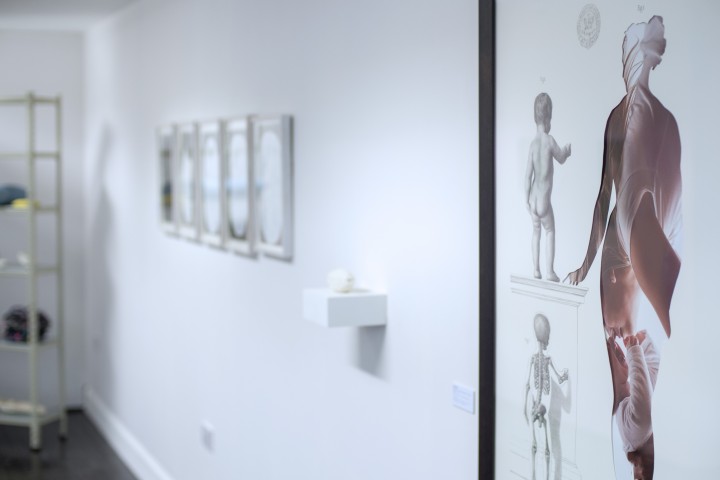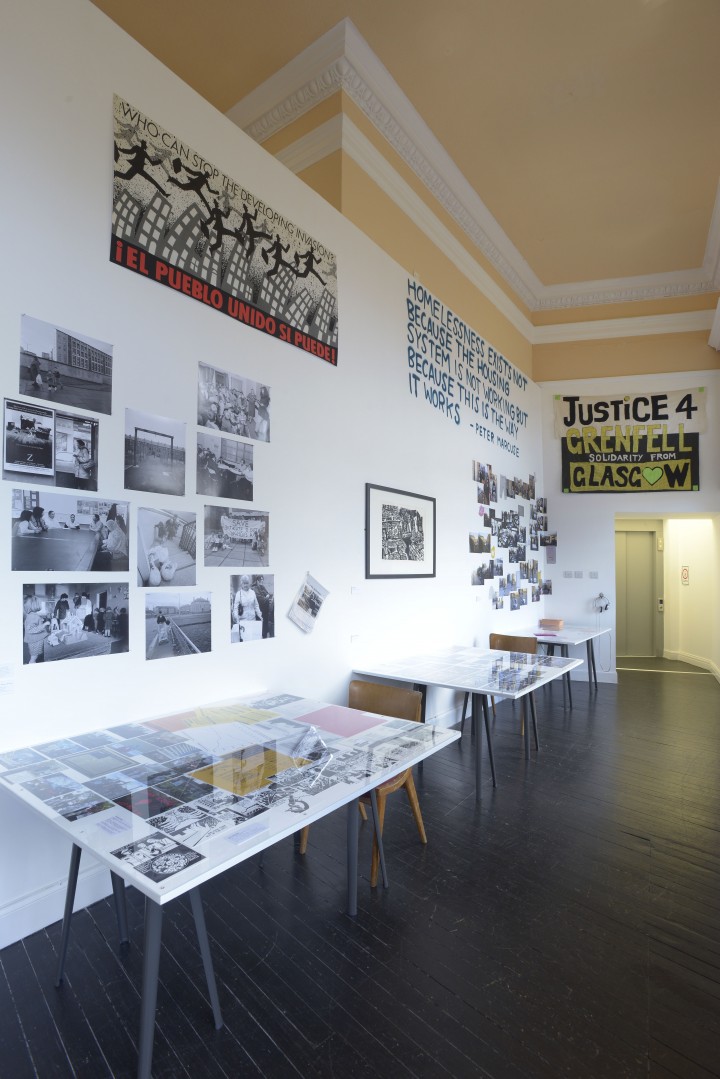Scottish Art News
Latest news
Magazine
News & Press
Publications
Life Support
By Gemma Batchelor, 23.09.2021

What does it mean to care for ourselves and others? How can ‘life support’ systems, from healthcare to housing, care for people in a radical and meaningful way? These are the questions asked and explored, thoroughly, by the Glasgow Women’s Library exhibition ‘Life Support: Forms of Care in Art and Activism’, organised in partnership with researchers from the Universities of St Andrews and Edinburgh, that takes over the building as part of the organisation’s 30th birthday year.
Interwoven within the everyday running and structure of the library are artworks, films, archival material and installation; objects to study and be moved by, and documents to unpick and be educated by. Artists, activists and archives come together under one banner, with a shared purpose, to present and challenge our understanding of ‘care’.
‘Life Support’ was realised during the current pandemic, a time when particular forms of care were in great need, in a way that was previously unnoticed by many. Work by artists Kate Davis, Greer Lankton, Shona Macnaughton, Olivia Plender, Franki Raffles, Martha Rosler, Veronica Ryan and Alberta Whittle critique various social, political and personal systems that are created to support us, through an intersectional feminist framework.
 Life Support: Forms of Care in Art and Activism exhibition detail. Martha Rosler, If You Lived Here... (1989-). Photo: Alan Dimmick.
Life Support: Forms of Care in Art and Activism exhibition detail. Martha Rosler, If You Lived Here... (1989-). Photo: Alan Dimmick.
Alberta Whittle engages with the exhibition closely, having produced a new interactive floor sculpture to be displayed amongst a series of digital prints as well as presenting three recent film works, exhibited together under the working title Creating dangerously (we-I insist!). Whittle describes the trilogy as speculating “on the optics of protest, channels of refusal, as well as the desire for pleasure and softness”, intertwined with research on the potential for “creative action to become a communion between audience and maker”. The films allow the audience to take a careful look at a number of contemporary events, including anti-racist protests, the crisis in healthcare and legacies of colonial violence. They are proof of Whittle’s urgently relevant practice.
Veronica Ryan has continuously returned to the forms of seeds and fruit throughout her practice, intrigued in particular by their dual connotations of nurture and decay. Cocoa Passion (2021), a porcelain sculpture cast from a cocoa pod, presents soft matter as something that is delicate and brittle. Instead of holding the possibility of new organic growth, the pod is hollow and lifeless. In contrast with what it might become, another readily available commodity that is often advertised as a form of self-comfort or pleasure, the cocoa pod also infers a background of inequalities and exploitation, of child labour and modern slavery. The barren object seems more fitting with this undercurrent understood.
.jpg) Life Support: Forms of Care in Art and Activism exhibition detail. Alberta Whittle, Creating dangerously (We - I insist!), (2020-21) film trilogy detail. Courtesy the artist. Photo: Alan Dimmick.
Life Support: Forms of Care in Art and Activism exhibition detail. Alberta Whittle, Creating dangerously (We - I insist!), (2020-21) film trilogy detail. Courtesy the artist. Photo: Alan Dimmick.
A print by Kate Davis visually contrasts the ‘labour of love’ of breastfeeding, depicted in art for centuries, with the hyper-commodification of cow’s milk. The work, Charity, quite simply highlights the inequality between what is now unwaged care work (but what was also once outsourced as an economic act for the privileged few) and a major part of the British economy. Breastfeeding, as one aspect of childcare, is rarely recognised as ‘work’, instead contributing to the widespread gender imbalance in childcare.
Upstairs, historic and current archives, so integral to the purpose of the library itself, are presented as a form of critical care work that informs and encourages radical thought and action. One such archive is a new iteration of Martha Rosler’s If You Lived Here… First presented in New York in 1989, the project presents work by different groups of people from specific communities (artists, filmmakers, community groups, writers and activists among them) to address issues of housing, homelessness and gentrification. This 2021 version was made in collaboration with Living Rent, Scotland’s tenant’s union, to present various histories of housing in Scotland. It is an exhibition within an exhibition. There is much to take in here.
Life Support: Forms of Care in Art and Activism is on at Glasgow Women’s Library until 16th October. The exhibition’s events programme includes an artist conversation with artists Olivia Plender and Alberta Whittle on Wednesday 6 October and a ‘Housing is a Feminist Issue’ public event in conjunction with Living Rent on Wednesday 22 October.




